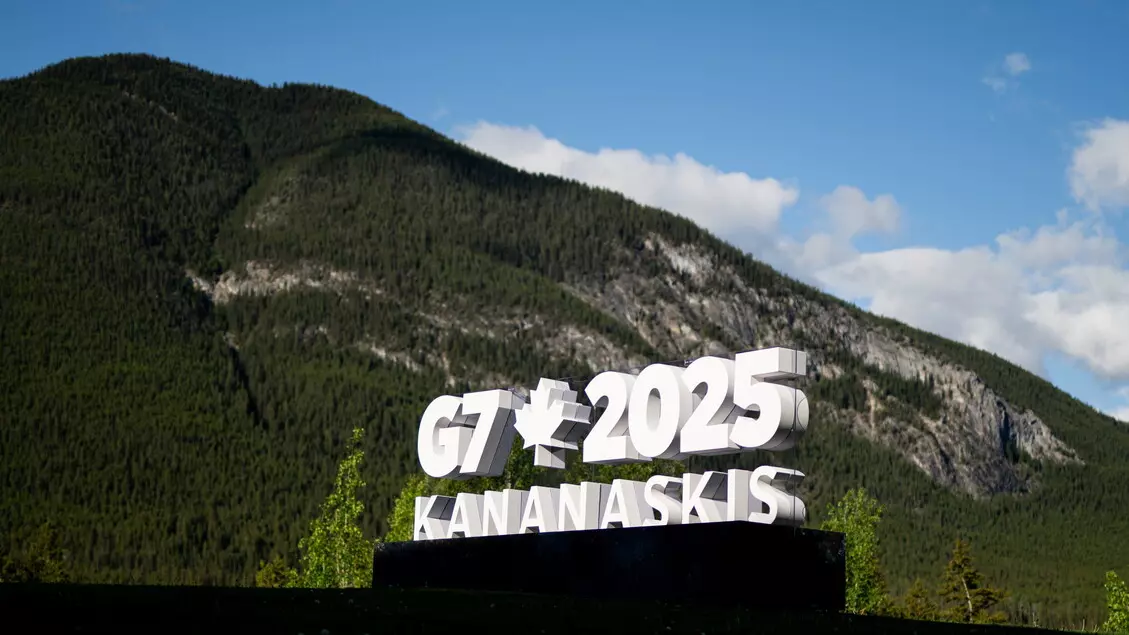President Trump is in Kananaskis, Canada on Sunday attending the annual G7 summit with leaders from Italy, France, Germany, the United Kingdom, Japan, and Canada to discuss world affairs. With a number of crises on the international scene – from the wars in Ukraine and the Middle East, to the American leader’s abrupt realignments and chaotic foreign relations – hope springs eternal that the opportunities for course correction will be seized by the heads of state over the 3-day summit in the remote reaches of the Canadian Rockies. A representative from the European Union, as well as other world leaders invited by Canadian Prime Minister Mark Carney, the summit’s host, will also be in attendance.
The summit comes as Israel broadened its invasion of Gaza into a regional war earlier this week, launching “pre-emptive” missile strikes against Iran, which has led to a series of missile volleys back and forth between the two countries that have killed hundreds in just three days. European leaders have come out in defense of Israel’s attack, accepting Prime Minister Benjamin Netanyahu’s claim that evidence was “absolutely clear” that Iran was on the verge of making a nuclear weapon. No such evidence has been made public as of this writing, and critics say that the Israeli leader has “cried wolf” over the years about Iran’s nuclear program. Israel is also widely known to be in possession of an undeclared nuclear arsenal.
France, Germany, and the United Kingdom, either through their leaders or statements, have all reaffirmed Israel’s “right to defend itself” and that Iran cannot be allowed to develop nuclear weapons, while also urging de-escalation.
The declarations come as the conflict continues to grow in intensity. The United States was already also drawing a hard line with Iran in nuclear negotiations before the Israeli attack, threatening military action if a deal could not be reached. Iranian Defense Minister Aziz Nasirzadeh responded that if the United States attacked, then Iran would target American military bases “within [their] reach.” Donald Trump said in an ABC interview on Sunday that “it’s possible” that the United States could become involved in the war, having already contributed to Israel’s defense from Iranian missile barrages.
Russia’s invasion of Ukraine is also a prominent issue, with Ukrainian President Volodymyr Zelenskyy also attending the summit. He told reporters on Thursday that he plans to speak with President Trump about continued military support for his country, as well as sanctions against Russia and financing for the reconstruction of Kyiv. The Ukrainian leader said that should their meeting not result in any firm agreements, he will gain “at least an understanding of how close we are to that decision.” Russia has been banned from what used to be the G8 ever since its annexation of Crimea in 2014.
This protracted conflict may soon be tied to the one in the Middle East, as President Trump announced on Sunday that he had “a long talk” with Russian President Vladimir Putin about being a mediator in the Israel-Iran conflict.
President Trump will also meet with Australian Prime Minister Anthony Albanese in a sideline meeting on Tuesday. They are expected to discuss geostrategic concerns, as the Pentagon earlier this week announced that it is reviewing its Aukus defense pact with Britain and Australia, a security agreement for the Indo-Pacific region between the three nations meant to counter China’s growing influence, which includes a partnership on nuclear submarines and other advanced technologies. Australia has committed A$368 billion (around $240 billion USD) to Aukus over the next three decades. Albanese told reporters in a press conference on Saturday that he looks forward to speaking “as good friends should” with the American president.
The Australian leader has also expressed a desire to discuss tariffs, as has Japanese Prime Minister Shigeru Ishiba, particularly in regards to auto companies. Since announcing a suite of tariffs on April 2nd against most of the world’s countries, President Trump has raised and lowered them in inscrutable fashion over 50 times.
The last time the G7 was held in Canada, in 2018, Donald Trump refused to sign the customary joint statement issued by participating nations at its close. This year, Prime Minister Carney, as summit host, will abandon the practice altogether, as Macron did when France hosted the G7 in 2019.











